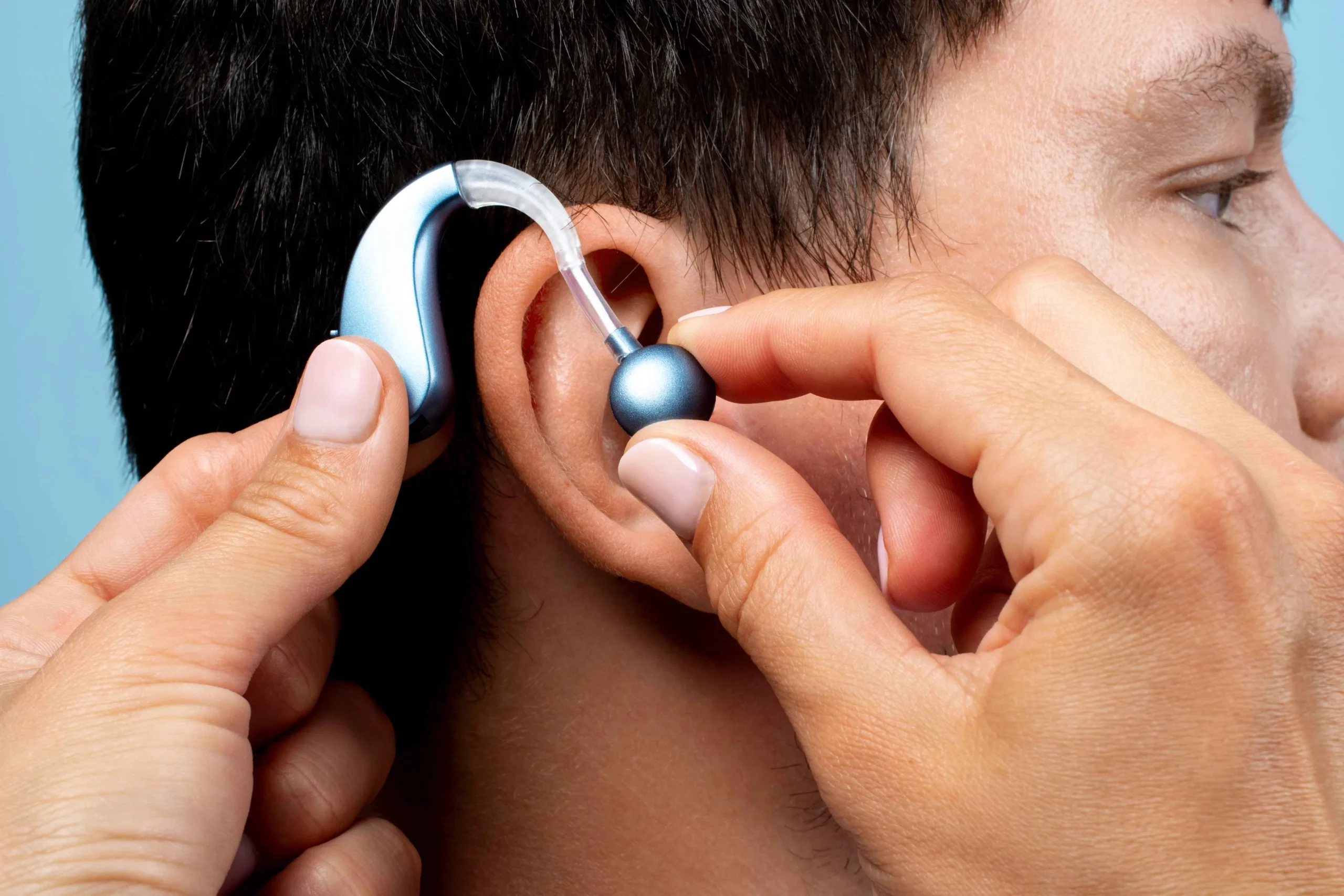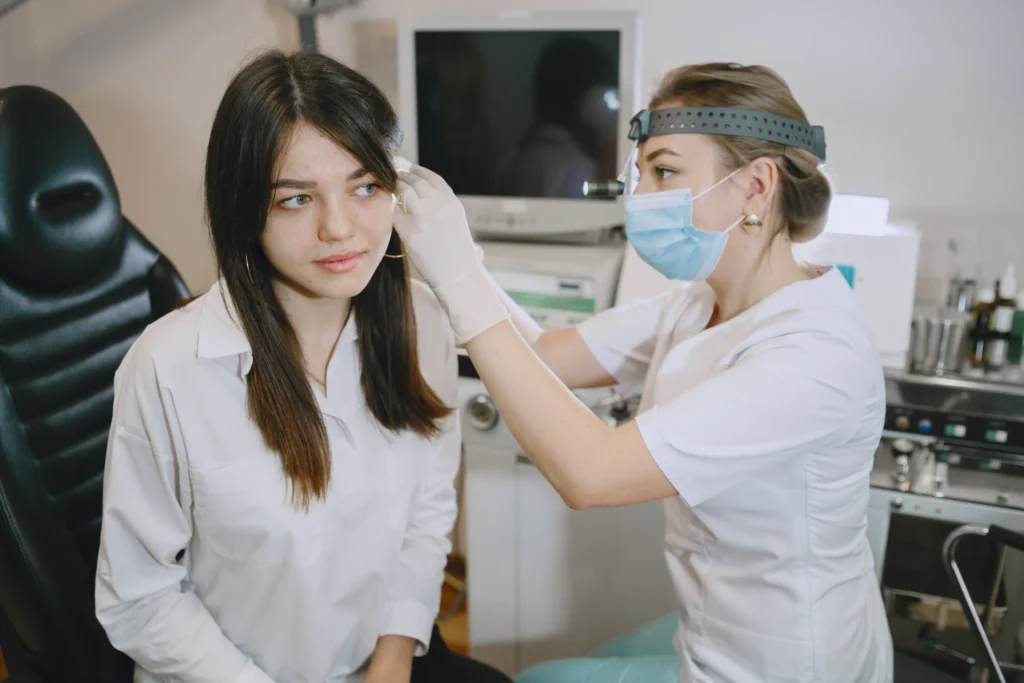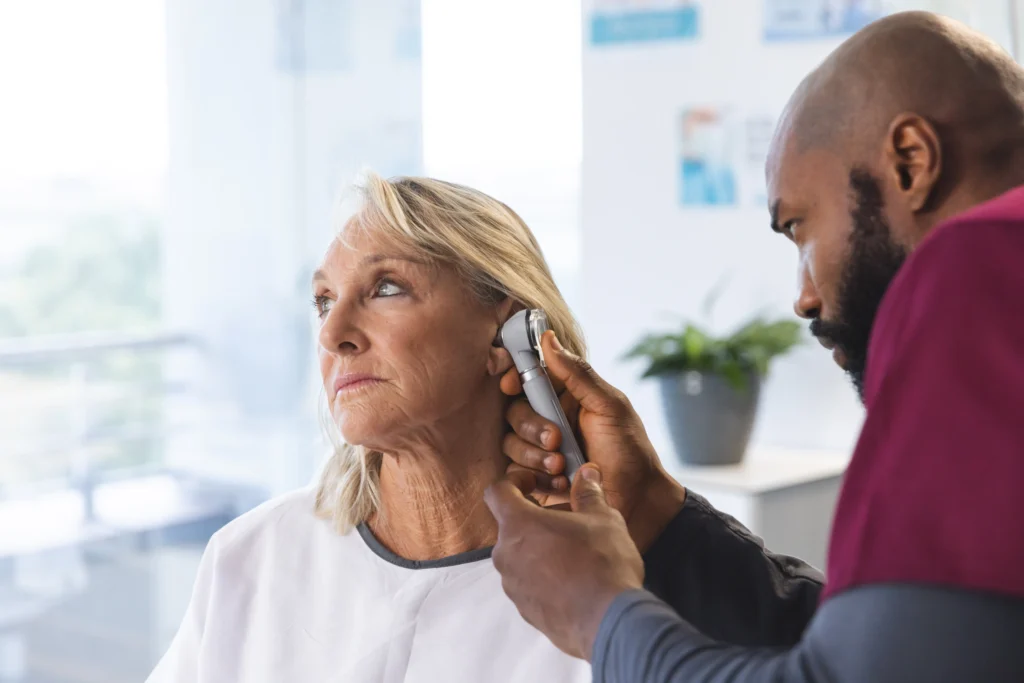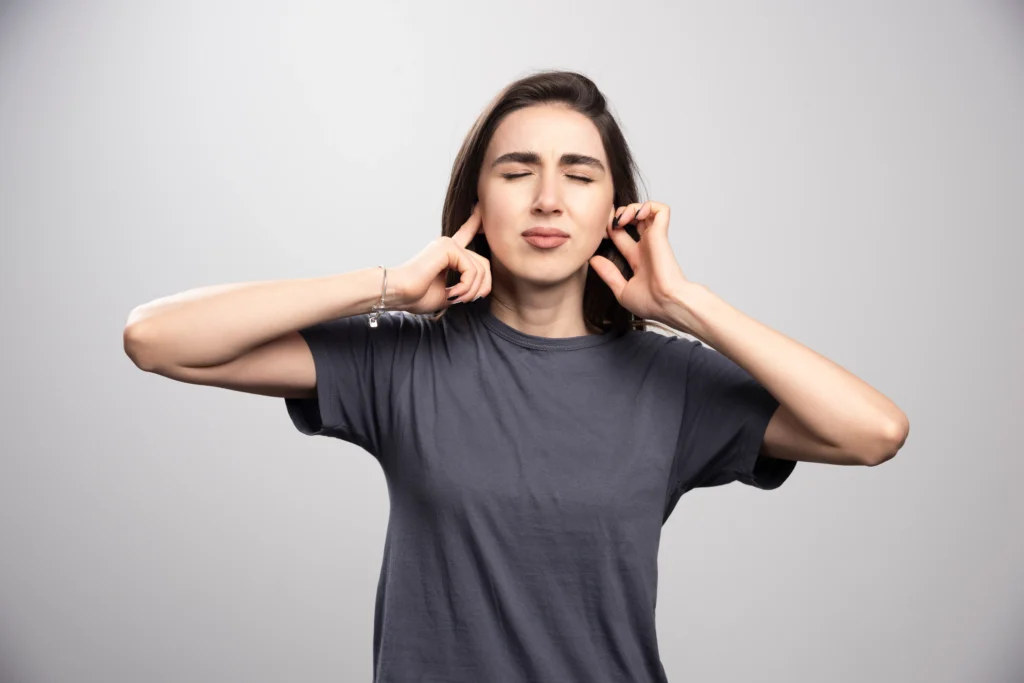If you have been facing hearing issues, for instance, missing parts of conversations or turning up the volume more than usual, then know that you are not alone.
Hearing loss actually starts unknowingly. You might often overlook the signs in the beginning and ideally feel that the others are mumbling, but over time, you will understand that such small signs or changes can start affecting your everyday life.
And this is exactly where it is important to start wearing a hearing aid. However, often, a lot of people wonder ‘Do I need hearing aids?’, they also wait for a long time before actually considering hearing aids, either because they’re not sure if they need them or have not yet fully recognised their hearing loss.
But the truth is: recognising the early hearing loss signs and taking action can make a lot of difference not just for your ears, but also your overall well-being.
To help you understand better, in this blog we will be taking you through when you should get hearing aids, how to understand the signs early on, and how professional guidance can help you stay connected to the people and moments that matter most.
Table of Contents
- Understanding Hearing Loss
- So, When Should You Get Hearing Aids?
- Common Situations That May Raise Questions
- In Essence
- FAQs
Understanding Hearing Loss
It is indeed a fact that hearing loss can happen to anyone irrespective of age and environment. Generally, hearing loss starts with small changes, for example, you may ask people to repeat what they said, or miss out on words from the conversations that you may have.
These are some of the early hearing loss signs which should not be ignored as these can collectively build up in future, taking your hearing loss to another level.
To help you understand your hearing condition better, here at Adirondack Audiology, we offer the best and most accurate hearing tests to understand your hearing condition. Our team of professional audiologists will guide you and recommend the best hearing aid based on your specific needs so you don’t have to worry about anything.
So, When Should You Get Hearing Aids?
One of the most important questions asked include ‘when should you get hearing aids?’. While there is no fixed answer to the question, it is important to understand the different aspects that come under it.
Most people actually think one should get hearing aids only when they get older and start experiencing the signs of hearing loss. However, you need to know that hearing loss does not only happen to older adults, but also young people. The most important thing is to catch it early.
If you have been wondering what are the signs of hearing loss? then here are a few hearing loss signs that you may experience early on:
- People around you say you’re not listening.
- You think others are mumbling.
- You avoid events because you can’t follow the conversations.
Remember that, the sooner you notice the changes and take action, the better your results will be.
Common Situations That May Raise Questions
Now that we have understood what are the signs of hearing loss, we will be taking you through what exactly some of them mean and how you should go about with it. Let us take a look at this simple table to understand more clearly:
| Situation | What It Could Mean |
| Asking people to repeat often | Possible early hearing loss |
| TV or music too loud | You’re missing soft sounds |
| Trouble in noisy environments | High-frequency hearing loss |
| Feeling tired after conversations | You are working hard to hear |
Remember that the longer you stay back ignoring the signs, the worse hearing loss can get. Also understand that if your ears don’t hear sounds for a long time, your brain can forget how to understand them and this is where hearing aids come to your rescue.
Using hearing aids early can protect your hearing and make your life easier. If you are still unsure about getting a hearing aid, a professional hearing test can give you a clear answer. Here, a hearing expert will talk to you, understand your hearing signs, test your ears, and explain everything in simple words. They will tell you the best if hearing aids can help you or if something else is needed.
In Essence,
Hearing loss can change your life. However, if you take action early, you can stop it from getting worse and affecting your everyday life. Whether you are noticing small changes in your day to day activities or facing struggles, hearing aids might be the help you need.
Knowing when you should get hearing aids can make all the difference in your health, your relationships, and your overall well-being. Remember that, your hearing matters.
If you are facing hearing issues and are planning to get hearing aids, then Adirondack Audiology has got you covered. We provide comprehensive hearing evaluation and hearing tests to help you understand your condition better and guide you through choosing the right hearing aid with the hearing aid fitting done at its best.
So, if you are beginning to notice changes in your hearing, our team of experienced professionals is here to help. Call us today at +1 (802) 922-9545 to book your appointment and visit our nearest center to experience the best service from our team of expert audiologists.
FAQs
- When do you need a hearing aid?
Ideally, you may need a hearing aid when you start having trouble hearing in your everyday life. For instance, that can include having trouble hearing people talk especially in noisy places like events or social gatherings. It may also include that you’ll find people repeat themselves around you, if you are struggling to hear the opposite person speak, or even if you are regularly turning the volume high. Know that a professional hearing test can help you understand the extent of hearing loss and whether or not you need a hearing aid for your hearing condition. - Do I need a hearing aid if I have hearing loss?
Absolutely Yes! You need to get a hearing aid if you have hearing loss irrespective of the level. Hearing loss can actually emotionally impact your everyday life and activities, thus, getting a hearing aid can be one of the most beneficial aspects of your hearing loss journey. Hearing aids actually come in different styles and these help amplify sounds and improve your overall hearing experience. Consulting a hearing specialist will help you decide through a hearing aid evaluation if a hearing aid is necessary and which type is best for you. - How long does it take to get a hearing aid fitted?
The hearing aid fitting process usually takes between 1 to 2 weeks after your hearing evaluation is completed. Usually, during this process, the audiologist will carry out the required hearing tests. The reports of these hearing tests will help understand the level of hearing loss and on the basis of this, the audiologist will recommend the right hearing aid. Once the hearing aid is fitted, it will first be tested for a week for you to get comfortable and understand if it is working right. If the problem continues, the audiologist will get the hearing aid programmed and fine tune once more that best suits your need. Once the hearing aid passes the real-time test, you can then carry on with your everyday activities. Some follow-up visits may be needed to fine-tune the settings and make sure everything works well for you. - Do I need a hearing aid if I have high frequency hearing loss?
Absolutely yes! Getting a hearing aid is very important if you have high frequency hearing loss. This is because hearing aids can amplify sounds and help you understand speech clearly especially at noisy places and social gatherings. Generally, high frequency hearing loss makes it difficult to hear sounds like birds chirping, or the voices of people around you. Thus, getting a hearing aid when you have a high frequency hearing loss is important. - What Level of Hearing Loss Requires the Use of a Hearing Aid?
Hearing aids are generally recommended for mild to severe hearing loss depending on how much it affects your everyday communication. Basically, if you have trouble hearing people talk during normal conversations irrespective of whether the environment is noisy or quiet, it may be time for a hearing aid. - What happens when a hearing aid is ready?
When your hearing aid is ready for fitting, you will have a hearing aid fitting appointment scheduled with your audiologist. During the appointment, the audiologist will program and fine tune the device to match your hearing needs, based on your hearing test results. The audiologist will also guide you on how to wear it, adjust the volume levels, and how to take care and clean your hearing aids at home. This visit will ensure that the hearing aid is set up correctly before you are all set to use it everyday. - What happens after a hearing aid is fitted?
After the hearing aid is fitted, you will ideally need to go through an adjustment period. During this period, your audiologist will schedule follow-up appointments to fine-tune the setting as per any further requirements that may come up and answer your questions related to the hearing aid, etc. Remember that, it is normal to feel nervous or overwhelmed at first, but with everyday use, your hearing, communication, and your overall well-being will improve over time helping you hear at its best. - How Can You Tell When it’s Time to Get Hearing Aids?
Hearing aids are one of the most important aspects of your hearing loss journey. You need to understand that irrespective of your hearing loss level, getting a hearing aid is beyond important. Some of the common signs that can easily tell you that it is time to get a hearing aid may include that you are struggling to hear clearly in conversations, constantly turning up the volume on your TV or phone, or avoiding social events due to hearing difficulties. The best way to get this done is through a professional hearing test that can confirm whether hearing aids will help. Early use can greatly improve communication and reduce stress caused by untreated hearing loss.









